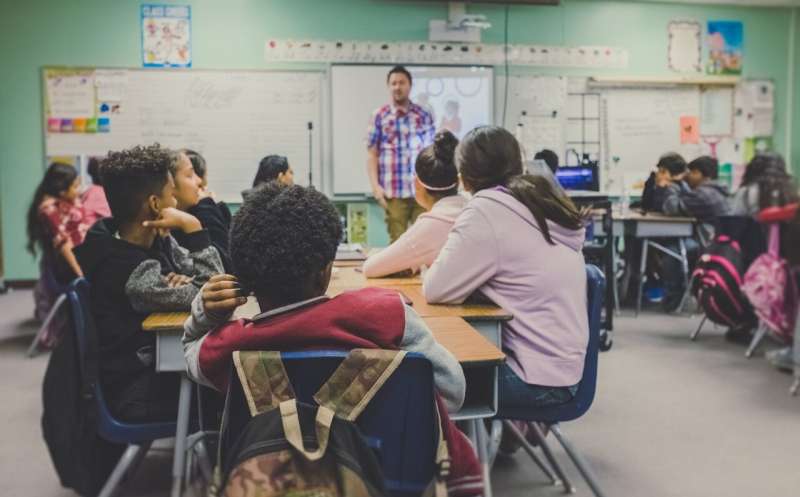This article has been reviewed according to Science X's editorial process and policies. Editors have highlighted the following attributes while ensuring the content's credibility:
fact-checked
peer-reviewed publication
trusted source
proofread
Researchers suggest inclusive education improves students' socio-emotional skills

A study featuring more than 3,500 Compulsory Secondary Education (ESO) students and 294 teachers reveals that teachers' commitment to inclusive education favors their students' socio-emotional skills. The findings are published in the journal Learning and Instruction.
Socio-emotional competencies are the set of knowledge, skills and attitudes that favor the development of positive interpersonal relationships and an adequate management of emotions in various contexts. They are also associated with academic success, and are a protective factor against bullying and other antisocial behaviors.
Given this scenario, Vicente J. Llorent and Mariano Núñez-Flores, researchers in the Department of Education of the University of Cordoba; and Markus Kaakinen, a researcher at the University of Helsinki, wanted to "determine whether the inclusive education of teachers is related to their students' socio-emotional competences."
Inclusive education is a pedagogical approach based on all students' basic right to education, regardless of their personal, cultural, and social conditions, whenever they present some type of educational need. Inclusive education does not focus on minorities or specific groups of students. Rather, it is oriented towards the recognition of and comprehensive responses to all students and their different idiosyncrasies.
To discern the role of teachers in the socio-emotional development of their students, the researchers launched the most comprehensive study so far in this area: 3,550 students and 294 teachers from 40 schools, grouped into 174 Compulsory Secondary Education (ESO) classrooms in the capital and province of Córdoba.
"We asked teachers, through a questionnaire about inclusive education, what attitudes they have. It's important to know whether they think it's positive or not, how they implement it in the classroom, how the educational center is organized, and whether they organize themselves collectively with a view to inclusive education," explains Llorent.
Cross-referencing this data with the level of students' socio-emotional competences in the dimensions of self-awareness, self-management and self-motivation, social awareness, prosocial behavior, and responsible decision-making, they reached a conclusion: there is a positive relationship between teachers being inclusive and students having socio-emotional competences.
"The more inclusive the education, the more socio-emotional skills we find, which prompts us to think that if teachers develop inclusive education, students will have more socio-emotional skills, which, in turn, are related to the prevention of antisocial behaviors like bullying, cyberbullying, cyberhatred and cyberviolence in affective relationships, which can be prevented if students have socio-emotional skills," argues the researcher.
The study reveals the decisive role that teachers play in boosting the social-emotional skills of their students through a commitment to inclusive education in their classes, with educational centers being a key factor.
The novel characteristic of this study, beyond being the first one this specialized, and "with excellent dimensions of participation," is its multi-informant nature. "We have what the teachers say, and also what the students say; we have the two visions, and we combine them, which is a strong point making the study more complex at a statistical level," says researcher Flores.
Teachers who opt for inclusive education in their approaches can be confident that this will give their students more socio-emotional skills, thanks to this team, which is now seeking to verify whether this effect continues in the long term.
More information: Vicente J. Llorent et al, Inclusive education by teachers to the development of the social and emotional competencies of their students in secondary education, Learning and Instruction (2024). DOI: 10.1016/j.learninstruc.2024.101892
Journal information: Learning and Instruction
Provided by University of Córdoba





















